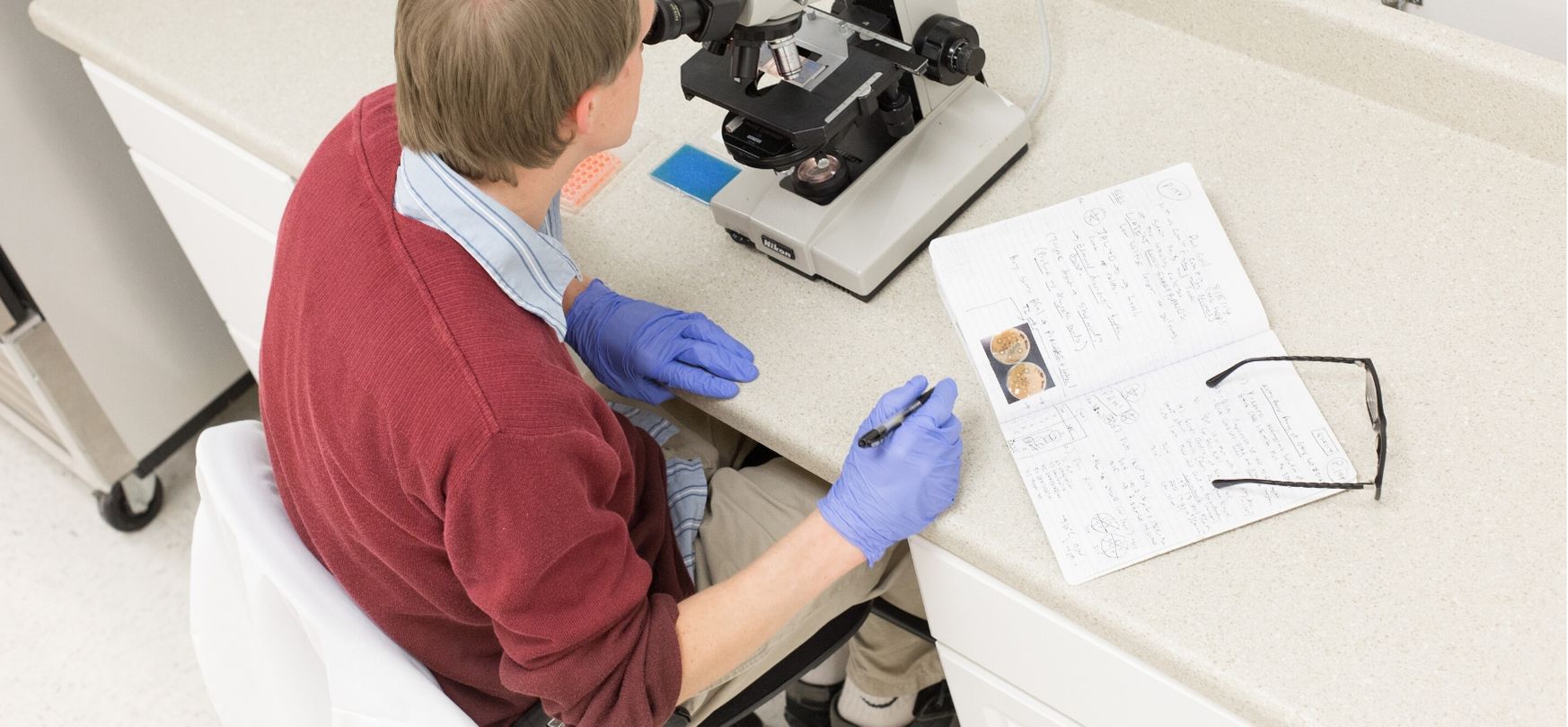If you've been browsing around the blog, you might find this post (as well as the last few) to be a little different from the normal informative or product-related posts. Well I might as well introduce myself, I'm the summer intern and will be giving you a little insight into the life of a senior biology major. Feel free to ask questions or give feedback on topics that you would find interesting.
This past year I had the privilege to work in the medical center as a lab assistant for school credit. Before I go too far into the oh so interesting details of what my position entailed, let me give you a little advice if you are thinking about becoming a biology major: be persistent. The field is completely cut-throat as all science majors and pre-med students have to have research experience. For this reason you have to stick to your guns to get what you want. The lab I ended up working for told me they had never accepted an undergraduate student, and didn't really think it was the right time. Nevertheless, I ended up working there for the year and could not have imagined a better experience.
Now something that I learned pretty early on is that every lab experience is very different. I have friends who sit and read data, run gels, do the dishes, and undertake really cool regeneration projects. So if you are just getting into the lab scene you have to realize that the field varies. Fortunately for me, I got the really cool projects. I had the opportunity to work on two new cutting edge technologies and basically worked on developing their protocols. When I first started in the lab I was not sure how the environment was going to pan out. It was all girls with the exception of a male senior researcher. I would be lying if I said I wasn't intimidated. Everyone in the lab knew way more about science than me, and you could tell they were always trying to figure out what exactly I knew. About the second week in, one of the other members of the lab asked me if I knew what DNA was. Needless to say, I of course said yes, and told them that I had been taking multiple science courses a semester and knew at least the basics. So after a month or so I really began to mesh with the other people in the lab, and even looked forward to getting in there just to see what I'd missed while I was in class. You almost become a weird family with everyone else (if you are fortunate enough to get a good group of people) because everyone is always helping each other out. I was especially grateful for this as I was still enrolled in 16 credit hours worth of classes, and could not possibly be in the lab 10 hours a day to be checking in on my experiments. The others were always more than happy to help me by starting or stopping my gels, blocking a Western, or thawing a reagent as soon as they got there. So for me, I was really lucky to get to be a part of such a cool group of scientists.
The other thing that makes science so great is that you can do something that have never been done before. My lab worked mostly in heart regeneration and diseases, or cancer research. I worked with mesenchymal stem cells (bone-marrow derived) to try to recreate vasculature, or blood vessels. This would not only be helpful in research to create mini organs to test products on, but also in human research to help patients who cannot undergo bypass surgery or have diabetes. So we had our target group in mind, and now had to figure out a way to differentiate our stem cells into endothelial cells (the cells that make blood vessels). Even though I was the undergrad, I suppose they liked me enough to let me work on the project on my own. This was both a terrifying and awesome feeling. I was so excited to get started, but at the same time if it didn't work it was going to be all my fault. This wouldn't be a big deal if all of the reagents I was playing around with weren't so dang expensive! (Another shameless Gold Bio plug!) It was always a game trying to figure out how to maximize reagents, while still having significant results. Nevertheless, a plan was made and it would take about 21 days to see the results.
This was by far the most agonizing part. There was nothing I could do to help along my little cells. I could only hope that by the end that they would turn sky blue with staining to show that they had indeed been transformed. So as the day arrived, we went to check them out under the microscope and take a few pictures if we could magnify them enough to get any hint of blue staining. This was not only important to show that the experiment worked, but I also had to give an hour long presentation about my experiment that would be way easier if they were blue. So with mounting anticipation we switched on the microscope and sure enough a blue field encompassed our screen. We even had to zoom out to show how the whole slide was blue. It was awesome. I don't even think excitement covers the feeling you get when your experiment works. It's one of those moments where you just have to do a little dance, snap a pic and make it the background on your phone. This way when someone makes the mistake of asking what in the heck your background is, you can brag a little bit while boring the other person to death. It's always a win-win. However, lab life isn't going to always work out. We had many projects give us conflicting data, or negative data. Negative data are just one of those things you always have to laugh at, like when you get an R2 value of 0.056 (it's supposed to be 1). In fact, other people have found negative data to be quite informative apparently, as they have started a whole journal about negative results. You can check that out here. When an experiment doesn't work it just means that you need to take a small break or have another lab member try. Again, you will become a small family, so make sure you are willing to help out the other members because you never know when you'll need them to return the favor.
All in all, I'd say if you are even considering being a biology major or going into the sciences; stick with it and get involved. I had been teeter-tottering between being a special education teacher or going into research, but after working in the lab I can definitely say I'm hooked and in it for the long haul. It's definitely not easy, but after getting my first positive and significant results I definitely know that lab life is the right life for me.
Deanna Tiek
Vanderbilt Class of 2014
Deanna is an intern at Goldbio during the summer of 2013.





